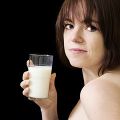Tackling The Fitness Or Sports Training Diet
Diet Checklist:
 Fat: Excess fat consumption has been linked with heart disease and several other modern-day diseases. Low-fat diets (diets in which less than 30 per cent of energy comes from fat) are advised for everyone, regardless of their level of activity. Fat intake can be reduced by:
Fat: Excess fat consumption has been linked with heart disease and several other modern-day diseases. Low-fat diets (diets in which less than 30 per cent of energy comes from fat) are advised for everyone, regardless of their level of activity. Fat intake can be reduced by:
- Choosing lean meats and removing any visible fat;
- Removing skin from poultry before cooking;
- Choosing reduced fat dairy products;
- Avoiding fried foods and high-fat snacks;
- Minimising the addition of fat to food – using less spreads, dressings and cooking oil. If your cholesterol is elevated, use mono-unsaturated or plyunsaturated fats and oils in place of saturated;
- Invest in a nonstick frying pan and simply brush with a little oil before cooking – do not pour the oil in;
- Avoid frying food – try grilling, dry-roasting on a rack; steaming, microwave cooking or wrapping in foil and baking.
Supplements: The use of vitamin and mineral supplements for athletes in heavy training remains a controversial issue and one which requires further research. To date, the majority of research has found vitamin supplements to be of no benefit to athletes who have well-balanced diets. Vitamin supplements do not compensate for a poor diet containing inadequate energy and / or carbohydrate. Supplements of iron are sometimes prescribed for athletes in heavy training who have inadequate iron stores. These supplements need to be taken under medical supervision so that iron stores can be monitored.